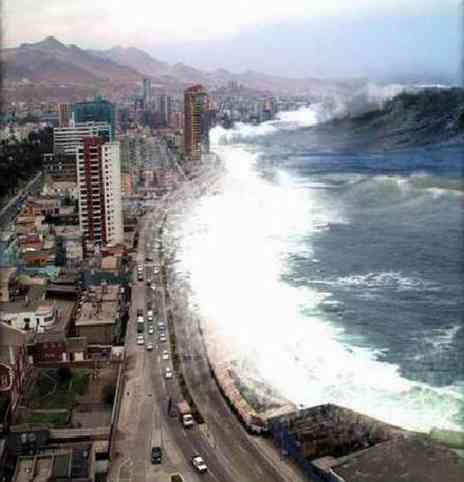
The United States and China want to amend a major report by U.N.-sponsored climate researchers to play down its conclusion that quick, affordable action can limit the worst effects of global warming, according to documents reviewed Monday by The Associated Press.
The critiques, among hundreds of government comments on the draft document, are the prelude to what is expected to be a contentious weeklong meeting as scientists and national delegations wrangle over final wording in the report of the Intergovernmental Panel on Climate Change, to be issued Friday.
Two previous IPCC reports this year painted a dire picture of a future in which unabated greenhouse gas emissions could drive global temperatures up as much as 11 degrees by 2100, and said animal and plant life was already affected by warmer and rising seas, spreading drought and other effects.
The upcoming third report will look at technologies and policies that could help head off damaging climate change, and at what cost, and discuss feasible goals for setting a ceiling on greenhouse gas accumulation in the atmosphere.
The week is shaping up as a test between the Europeans, who want a relatively low ceiling and speedy action, and the Bush administration, whose comments on the draft summary indicate it wants a document envisioning higher ceilings and a longer view on action.
The IPCC assessment, the first in six years, will provide fresh background for ongoing international negotiations over a climate regime to succeed the Kyoto Protocol in 2012.
The 1997 Kyoto pact requires 35 European and other nations to reduce industrial, transportation and agricultural emissions of carbon dioxide and other warming gases by 5 percent below 1990 levels by 2012. Scientists believe emissions must be cut 50 percent or more within decades to avert drastic climate change.
President Bush rejected Kyoto's mandatory cuts, contending they would hobble the U.S. economy. China and other poor developing countries were exempted.
The draft of the third report, obtained by the AP, says greenhouse emissions can be cut below current levels if the world takes such steps as shifting away from coal and other fossil fuels, investing in energy efficiency and working to halt deforestation, which eliminates carbon "sinks."
The report, prepared and reviewed by hundreds of researchers, says that by quickly embracing an ideal basket of technological options - both already available and being developed - the world can stabilize greenhouse gas concentrations in the atmosphere to around 450 parts per million, slightly higher than the current 435 ppm.
Some scientists believe a 450-ppm ceiling might limit the global temperature rise to 3.6 degrees - 2 degrees Celsius - above the world's preindustrial temperatures, a level that might avoid the worst damage. Some economists believe, however, that a 450-ppm ceiling is unrealistic, and 550 ppm is more achievable.
Comments on the draft by Germany and the European Union seek to highlight a scenario with a 445-535-ppm range and the 2-degree-Celsius ceiling. The Europeans emphasize a passage on action in the next "two or three decades," while a U.S. comment seeks to replace that with a reference to "the end of the century" and to a scenario of 500-550 ppm concentrations. That might produce temperatures 5 to 6 degrees above preindustrial levels.
The U.S. wants clauses inserted saying the cost of available technologies to reduce emissions and stabilize greenhouse gas concentrations "could be unacceptably high" and calling for a greater emphasis on "advanced technologies," many of which are aimed at extending the use of coal.
The United States and China also criticized the draft's economic projections, which conclude that stabilizing gases to establish the 2-degree-Celsius ceiling would cost less than 3 percent of the global gross domestic product (GDP) over two decades - compared with 3-percent yearly growth currently. China complained the number of studies supporting that optimistic forecast is "relatively small."
The damage from unabated climate change, meanwhile, might cost the global economy between 5 percent and 20 percent of GDP every year, according to a British government report last year.
In its defense, the United States said it is working to promote energy efficiency, vehicle fuel efficiency and clean-coal technology while sustaining economic growth.
"Our goal throughout the IPCC process is for the reports to best reflect the latest state of knowledge on addressing global climate change so that these reports are useful to the policy community and are supported by scientific and economic data," Harlan Watson, U.S. delegation head, said by e-mail.
Rajendra Pachauri, chairman of the climate change panel, said "every country" would have a chance to express its views and "ultimately it's a balanced assessment of the science that will prevail."
More than 200 delegates chosen by 119 countries will examine the IPCC's report this week and recommend changes before it is finalized.
Copyright 2007 Associated Press. All rights reserved. This material may not be published broadcast, rewritten, or redistributed

No comments:
Post a Comment